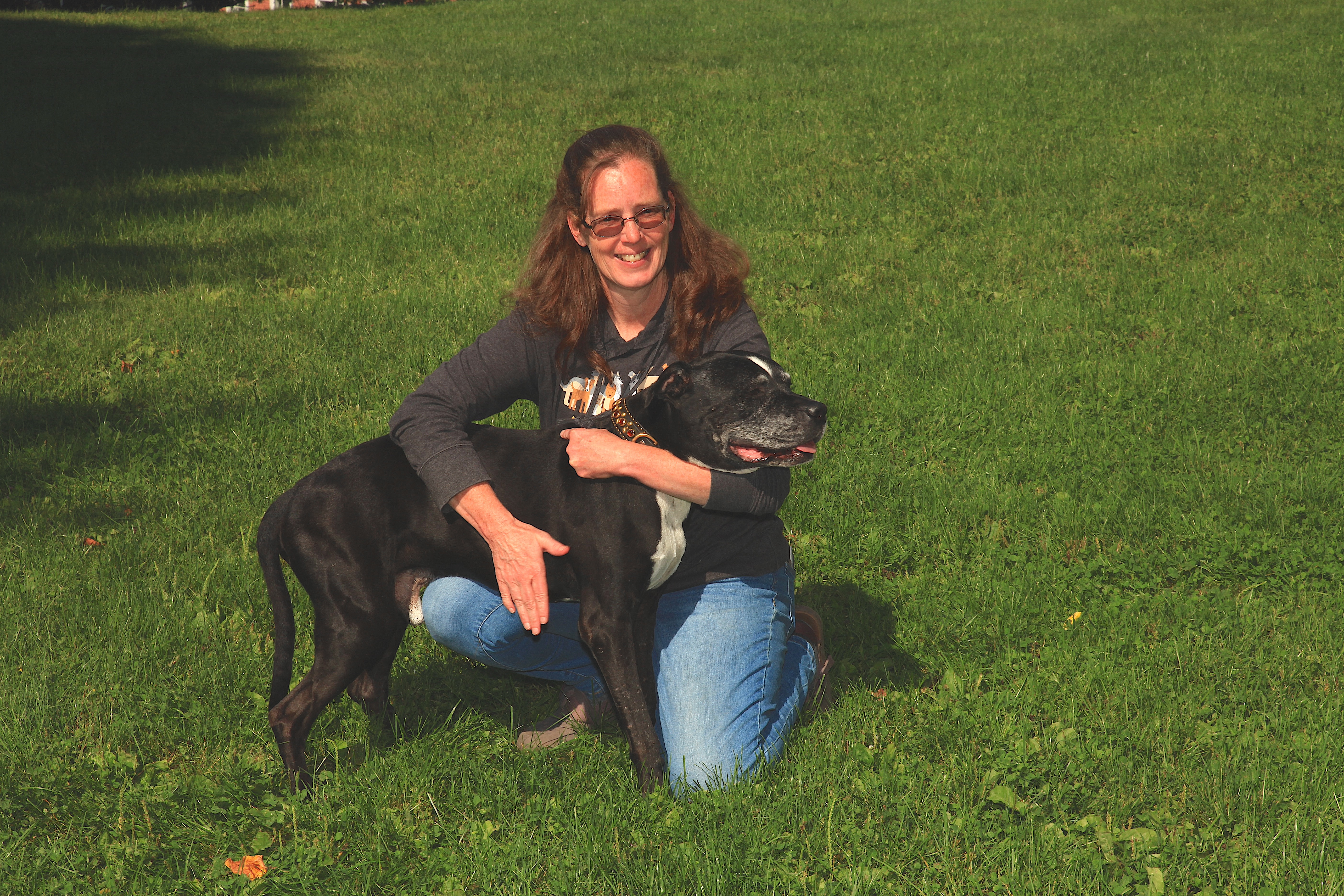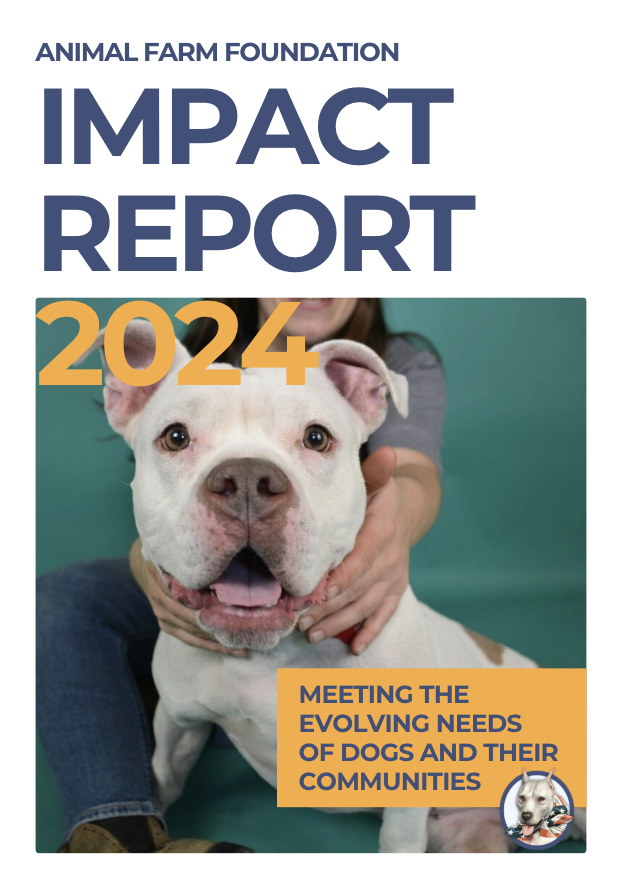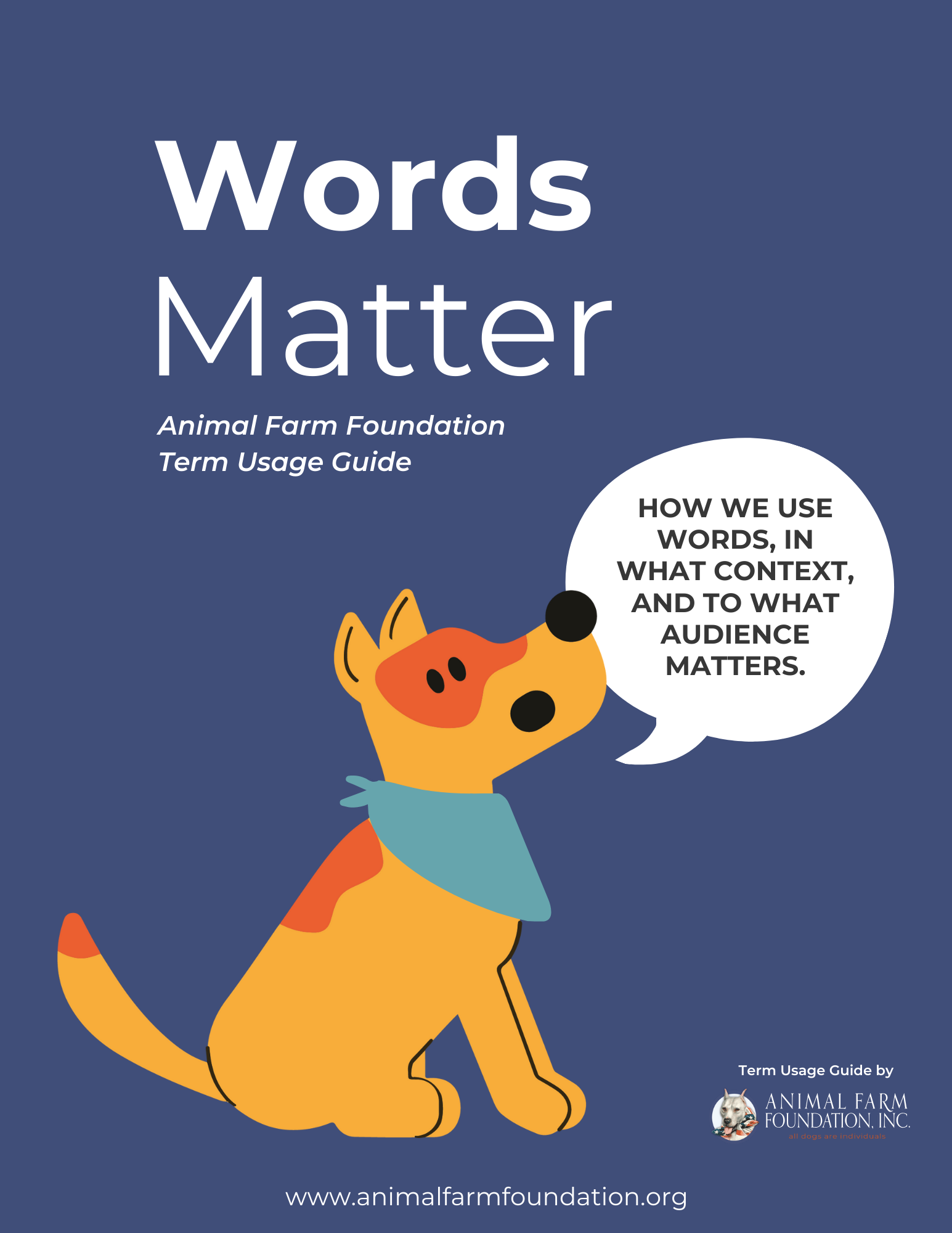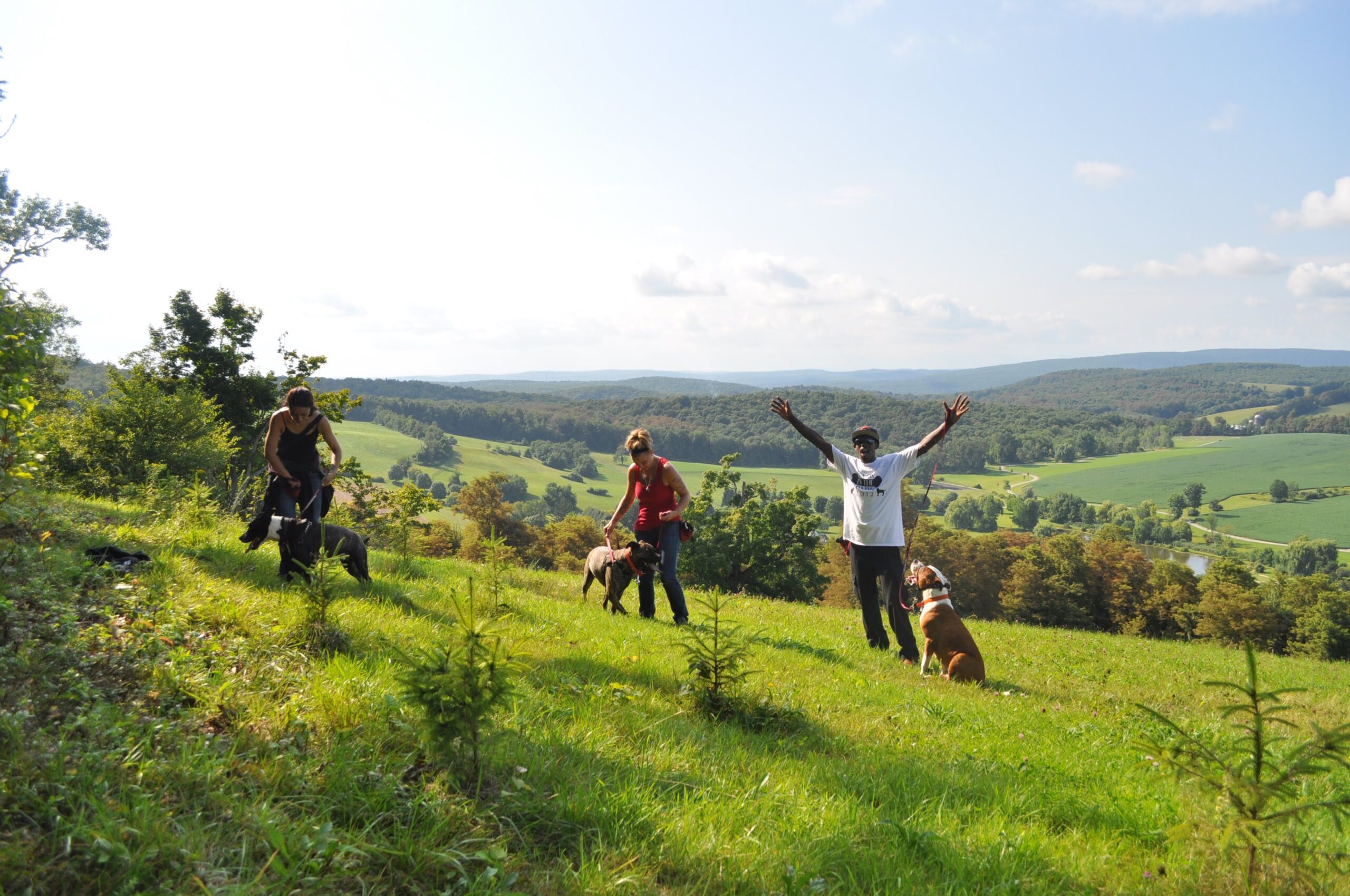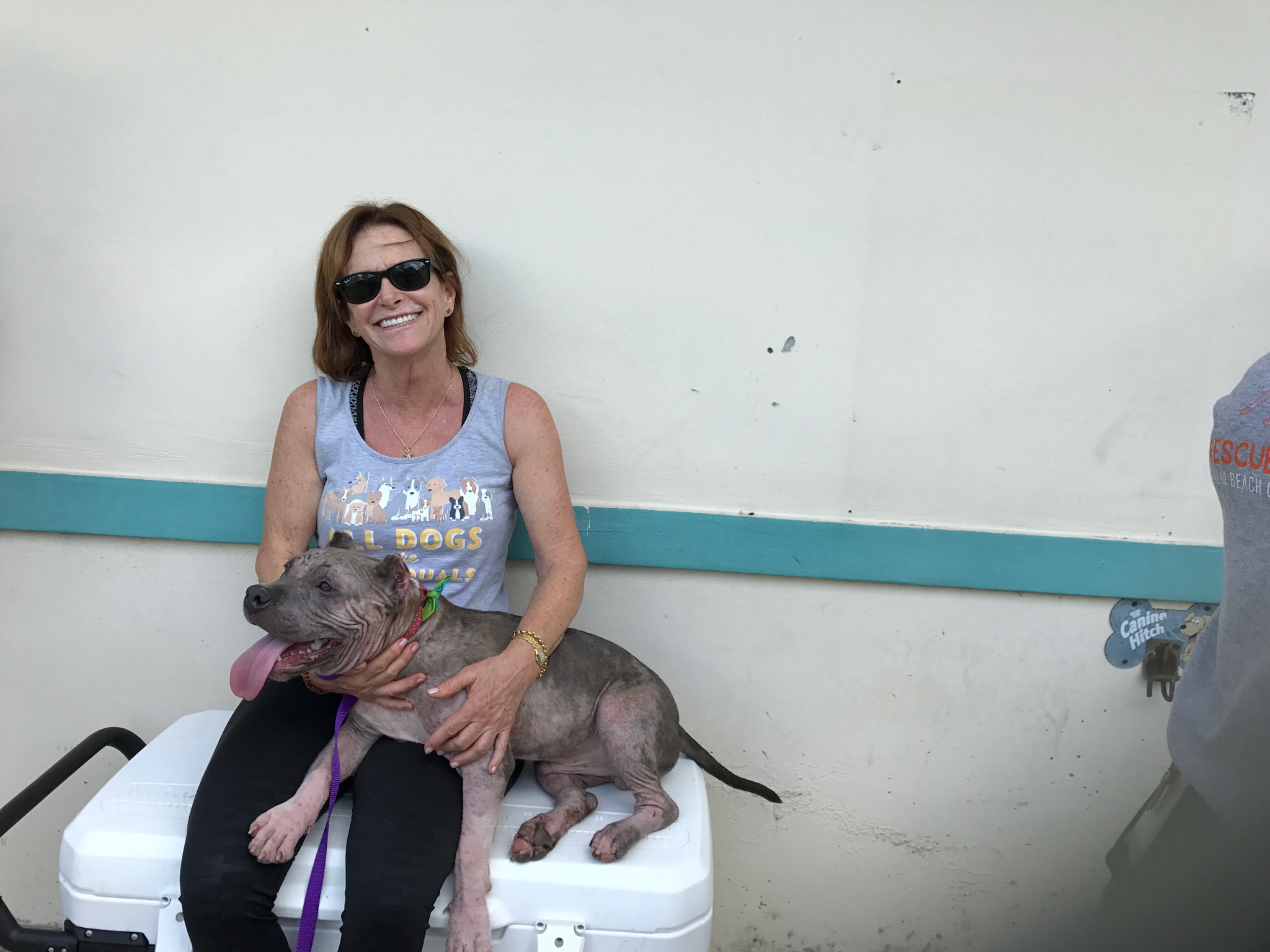It’s October. It’s pumpkin spice latte (well, pumpkin spice everything) and Halloween time. If you’re a dog lover, especially if you’re a dog parent whose pup might end up a target of breed specific legislation, this month also means that it’s “Pit Bull” Awareness Month.
If you’ve been a follower of Animal Farm Foundation’s work since the beginning, then you know that our approach to advocacy has changed over time. These changes are a direct response to three things:
1. DOES SCIENCE SUPPORT THE LANGUAGE OR THE METHODS WE’RE USING?
2. WHAT MESSAGE ARE WE REALLY SENDING TO THE PUBLIC?
3. ARE WE EVOLVING WITH THE NEED?
These questions have led us to think twice about “pit bull” dog-related awareness campaigns. We’ve ultimately decided to call bull on them.
Decades ago, these campaigns were about making the world aware of the discrimination “pit bull” dogs and their owners faced. It was more about breed-specific discrimination awareness than “pit bull” dog awareness. While there is still work to be done, BSL is on the decline.
Society is in a different place and our advocacy efforts should reflect that. If we want people to move beyond false stereotypes, then we must move toward advocacy that makes sense for present times – advocacy that will carry us into the future.

Science has come a long way in understanding dog genetics. We know so much more about dogs and who they are. First and foremost, we now know that all dogs are individuals.
We know that when people label a dog a “pit bull,” they’re doing so based on highly inaccurate visual identification. Most dogs with that label are of mixed and/or unknown heritage. We have no idea what personality traits a dog will have based on their appearance.
Our advocacy efforts should reflect this knowledge. However, over time, “pit bull” dog awareness days have become less about making people aware of injustice and more about making people aware of “pit bull” dogs in general.
These campaigns are well-intentioned, but let’s go back to the question of what this message sends to the public.
The phrase “Pit Bull” Awareness Month implies that we need to be aware of something – of “pit bull” dogs. What is it that people need to know? Common answers are:
“THEY’RE THE BEST DOGS!”
“THEY’RE THE BEST DOGS TO HAVE AROUND KIDS!”
“THEY ARE THE MOST LOVING DOGS YOU’LL EVER MEET.”
There’s one glaring problem here that doesn’t line up with science: Dogs labeled “pit bull” aren’t a “they.” They aren’t a group tied together by genetics (not that it would matter if they were), other than the fact that they’re all dogs. We all agree on this, right? Yet, when we use the term “they” followed by a general description, we’re telling people that there is something different about them. We’re telling people that they do need to be aware of these dogs as a group.
We’re telling people that these dogs are not individuals.
– “PIT BULLS” AND PINTS CAN BECOME PAWS AND PINTS.
– INSTEAD OF HAVING PITTIES IN THE PARK, YOU CAN CELEBRATE BARKS IN THE PARK.
– A PIT BOWL IS MORE ON MESSAGE WITH ALL DOGS BEING INDIVIDUALS IF IT’S A PUP BOWL.
WATCH OUR ‘IT’S BULL’ PSA
Breed-specific discrimination affects so many of us on a gut-level. It’s about our families. Therefore, when we advocate against it, we advocate from the heart. But that kind of advocacy isn’t as effective as science-based facts. We must temper our hearts with our minds and think critically before we advocate.
It’s that deep level of reflection that led us to create #ItsBullAwareness. We believe in celebrating all dogs, all of the time. Dogs labeled “pit bull” are only viewed as different by society because society makes it so. The goal of advocating against breed-specific discrimination is to undo this myth. We can’t do that if we set aside specific days and months to make people aware of “pit bull” dogs. They’re just dogs. That’s all we need to know about them as a group, and as individuals, well, that’s up to them to tell us who they are.
For more information on the language of advocacy, visit itsbullawareness.org.

